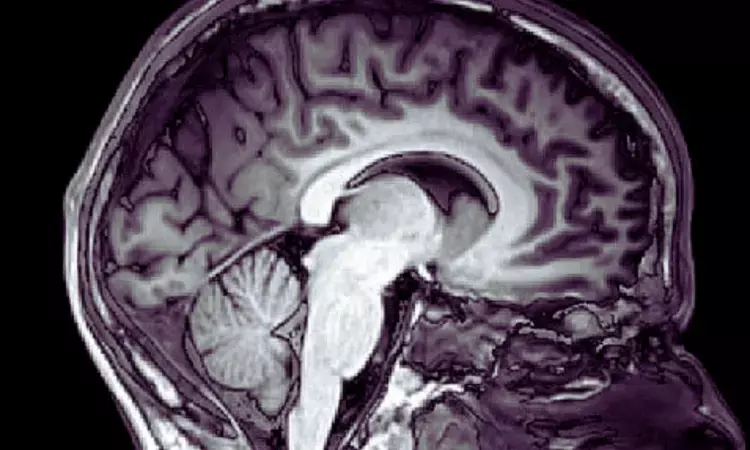- Home
- Medical news & Guidelines
- Anesthesiology
- Cardiology and CTVS
- Critical Care
- Dentistry
- Dermatology
- Diabetes and Endocrinology
- ENT
- Gastroenterology
- Medicine
- Nephrology
- Neurology
- Obstretics-Gynaecology
- Oncology
- Ophthalmology
- Orthopaedics
- Pediatrics-Neonatology
- Psychiatry
- Pulmonology
- Radiology
- Surgery
- Urology
- Laboratory Medicine
- Diet
- Nursing
- Paramedical
- Physiotherapy
- Health news
- Fact Check
- Bone Health Fact Check
- Brain Health Fact Check
- Cancer Related Fact Check
- Child Care Fact Check
- Dental and oral health fact check
- Diabetes and metabolic health fact check
- Diet and Nutrition Fact Check
- Eye and ENT Care Fact Check
- Fitness fact check
- Gut health fact check
- Heart health fact check
- Kidney health fact check
- Medical education fact check
- Men's health fact check
- Respiratory fact check
- Skin and hair care fact check
- Vaccine and Immunization fact check
- Women's health fact check
- AYUSH
- State News
- Andaman and Nicobar Islands
- Andhra Pradesh
- Arunachal Pradesh
- Assam
- Bihar
- Chandigarh
- Chattisgarh
- Dadra and Nagar Haveli
- Daman and Diu
- Delhi
- Goa
- Gujarat
- Haryana
- Himachal Pradesh
- Jammu & Kashmir
- Jharkhand
- Karnataka
- Kerala
- Ladakh
- Lakshadweep
- Madhya Pradesh
- Maharashtra
- Manipur
- Meghalaya
- Mizoram
- Nagaland
- Odisha
- Puducherry
- Punjab
- Rajasthan
- Sikkim
- Tamil Nadu
- Telangana
- Tripura
- Uttar Pradesh
- Uttrakhand
- West Bengal
- Medical Education
- Industry
Poor Blood Sugar Control in Older Adults with Type 2 Diabetes Linked to Brain Cortex Thinning: Study

USA: A new study published in Alzheimer's & Dementia: Diagnosis, Assessment & Disease Monitoring revealed that older adults with type 2 diabetes have significantly thinner brain cortexes, particularly in regions linked to memory and cognition. This cortical thinning is associated with poor blood sugar control and is more prevalent among Hispanic individuals, highlighting potential disparities in diabetes-related brain health outcomes.
The study, which analyzed data from 2,171 cognitively normal older adults, aimed to better understand how type 2 diabetes mellitus (T2DM) might contribute to the risk of dementia. Researchers specifically examined the relationship between diabetes, cortical thickness, and hippocampal volume, a key brain region involved in memory processing. The participant group was ethnically diverse, which allowed the researchers to explore potential variations across racial and ethnic lines.
The key findings were as follows:
- Individuals with type 2 diabetes had significantly thinner brain cortexes, even after accounting for socioeconomic factors and common comorbidities.
- Elevated hemoglobin A1c (HbA1c) levels were identified as the key driver of this cortical thinning.
- The link between higher HbA1c and reduced cortical thickness was seen in both diabetics and non-diabetics, indicating that even moderate blood sugar elevations can affect brain structure.
- Among Hispanic participants, the association between diabetes and cortical thinning was strong and widespread.
- In non-Hispanic White individuals, the effect was less pronounced and limited to specific brain regions.
- There was no significant association between diabetes and cortical thinning in non-Hispanic Black participants.
- These findings highlight ethnic differences in susceptibility to diabetes-related brain changes.
Dr. Amaryllis A. Tsiknia, the study’s senior author, and colleagues emphasized the importance of blood sugar management, stating, “Since blood sugar levels can be managed with proper treatment and lifestyle interventions, our findings highlight the potential for protecting brain health through better diabetes management.”
They added, “The disparities we observed by ethnic and racial group suggest that more work is needed to understand how exposures to various risk factors can work together in distinct ways across different people to determine brain health.”
The authors stress that future longitudinal research will be critical to determine whether poor glycemic control leads to faster brain degeneration over time and to guide strategies aimed at reducing dementia risk among those living with type 2 diabetes.
"Our study reveals a strong link between type 2 diabetes and abnormal brain imaging patterns in a diverse group of cognitively healthy older adults, likely driven by high blood sugar levels. Long-term research is needed to clarify how hyperglycemia accelerates brain degeneration and to guide strategies that reduce dementia risk," the authors concluded.
Reference:
Tsiknia AA, Tennant VR, Lee N, Hall BJ, Vintimilla R, Hazra N, Kothapalli D, Toga AW, O'Bryant SE, Nandy RR, Clark AL, Petersen M, Yaffe K, Braskie MN; HABS‐HD study team. Diabetes and cortical thickness in ethnically diverse cognitively normal older adults. Alzheimers Dement (Amst). 2025 May 9;17(2):e70088. doi: 10.1002/dad2.70088. PMID: 40352686; PMCID: PMC12064342.
Dr Kamal Kant Kohli-MBBS, DTCD- a chest specialist with more than 30 years of practice and a flair for writing clinical articles, Dr Kamal Kant Kohli joined Medical Dialogues as a Chief Editor of Medical News. Besides writing articles, as an editor, he proofreads and verifies all the medical content published on Medical Dialogues including those coming from journals, studies,medical conferences,guidelines etc. Email: drkohli@medicaldialogues.in. Contact no. 011-43720751


